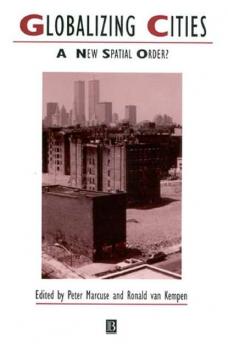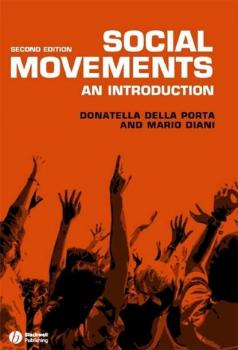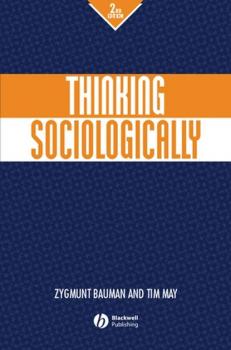MREADZ.COM - много разных книг на любой вкус
Скачивание или чтение онлайн электронных книг.Encountering Nationalism
Encountering Nationalism introduces students to concepts of nationalism in an accessible, critical, and timely way. Abstract arguments are bolstered by clear and specific examples drawn from momentous events and from the well of everyday life, such as the aftermath of September 11, beauty pageants, ethnic conflicts, and sexual respectability. Encountering Nationalism is an engaging introduction to the diverse meanings of nationalism and its most important aspects. Addresses the rise of nationalism in the US post-September 11. Brings together “culturalist” and state-centered approaches to nationalism. Underscores the importance of race, gender, sexuality, ethnicity, and religion to understanding nationalism. Clarifies key concepts such as nationalism, nation, state, gender, sexuality, etc. Contains useful examples to illustrate key aspects of nationalism. Features clear and engaging prose.
Urban Outcasts
Breaking with the exoticizing cast of public discourse and conventional research, Urban Outcasts takes the reader inside the black ghetto of Chicago and the deindustrializing banlieue of Paris to discover that urban marginality is not everywhere the same. Drawing on a wealth of original field, survey and historical data, Loïc Wacquant shows that the involution of America's urban core after the 1960s is due not to the emergence of an 'underclass', but to the joint withdrawal of market and state fostered by public policies of racial separation and urban abandonment. In European cities, by contrast, the spread of districts of 'exclusion' does not herald the formation of ghettos. It stems from the decomposition of working-class territories under the press of mass unemployment, the casualization of work and the ethnic mixing of populations hitherto segregated, spawning urban formations akin to 'anti-ghettos'. Comparing the US 'Black Belt' with the French 'Red Belt' demonstrates that state structures and policies play a decisive role in the articulation of class, race and place on both sides of the Atlantic. It also reveals the crystallization of a new regime of marginality fuelled by the fragmentation of wage labour, the retrenchment of the social state and the concentration of dispossessed categories in stigmatized areas bereft of a collective idiom of identity and claims-making. These defamed districts are not just the residual 'sinkholes' of a bygone economic era, but also the incubators of the precarious proletariat emerging under neoliberal capitalism. Urban Outcasts sheds new light on the explosive mix of mounting misery, stupendous affluence and festering street violence resurging in the big cities of the First World. By specifying the different causal paths and experiential forms assumed by relegation in the American and the French metropolis, this book offers indispensable tools for rethinking urban marginality and for reinvigorating the public debate over social inequality and citizenship at century's dawn.
Military Geographies
Military Geographies is about how local space, place, environment and landscape are shaped by military presence, and about how wider geographies are touched by militarism. A book about how local space, place, environment and landscape are shaped by military presence, and about how wider geographies are touched by militarism. Sets a new agenda for the study of military geography with its critical analysis of the ways in which military control over space is legitimized. Explores the ways in which militarism and military activities control development, the use of space and our understanding of place. Focuses on military lands, establishments and personnel in contemporary peacetime settings. Uses examples from Europe, North America and Australasia. Draws on original research into the mechanisms by which the British government manages the defence estate. Illustrated with maps, plans and other figures.
State / Space
This groundbreaking, interdisciplinary volume brings together diverse analyses of state space in historical and contemporary capitalism. The first volume to present an accessible yet challenging overview of the changing geographies of state power under capitalism. A unique, interdisciplinary collection of contributions by major theorists and analysts of state spatial restructuring in the current era. Investigates some of the new political spaces that are emerging under contemporary conditions of ‘globalization'. Explores state restructuring on multiple spatial scales, and from a range of theoretical, methodological and empirical perspectives. Covers a range of topical issues in contemporary geographical political economy. Contains case study material on Western Europe, North America and East Asia, as well as parts of Africa and South America.
Capital Culture
The changing nature of waged work in contemporary advanced industrial nations is one of the most significant aspects of political and economic debate. It is also the subject of intense debate among observers of gender. Capital Culture explores these changes focusing particularly on the gender relations between the men and women who work in the financial services sector. The multiple ways in which masculinities and femininities are constructed is revealed through the analysis of interviews with dealers, traders, analysts and corporate financiers. Drawing on a range of disciplinary approaches, the various ways in which gender segregation is established and maintained is explored. In fascinating detail, the everyday experiences of men and women working in a range of jobs and in different spaces, from the dealing rooms to the boardrooms, are examined. This volume is unique in focusing on men as well as women, showing that for men too there are multiple ways of doing gender at work.
Globalizing Cities
This exciting collection of original essays provides students and professionals with an international and comparative examination of changes in global cities, revealing a growing pattern of social and spatial division or polarization.
Personal Life
For more than a decade, Carol Smart has been at the forefront of debates about the sociology of the family. Yet she has become frustrated by the fixation of many commentators with the supposed decline of commitment, and even the decline of the possibility of family life. In this exciting new book, she puts forward a new way of understanding families and relationships. Breaking with conventional wisdom, her book offers a fresh conceptual approach to understanding personal life, which realigns empirical research with theoretical analysis. She gives emphasis to ideas of connectedness, relationality and embeddedness, rejecting many of the assumptions found in theories of individualisation and de-traditionalisation by authors such as Beck and Beck-Gernsheim, Bauman and Giddens. Instead, her approach prioritises the bonds between people, the importance of memory and cultural heritage, the significance of emotions (both positive and negative), how family secrets work and change over time, and the underestimated importance of things such as shared possessions or homes in the maintenance and memory of relationships. This ground-breaking text will be essential reading for anyone who cares about the future of families and personal relationships, and who wants to understand this most intimate area of social life.
Moral Panics
Packed with new examples and material, this second edition provides a fully up-to-date exploration of the genesis, dynamics, and demise of moral panics and their impacts on the societies in which they take place. Packed with updated and recent examples including terrorism, the 9/11 attack on the World Trade Towers, school shootings, flag burning, and the early-2000s resurgence of the “sex slave” scare Includes a new chapter on the media, currently regarded as a major component of the moral panic Devotes a chapter to addressing criticisms of the first edition as well as the moral panics concept itself Written by long-established experts in the field Designed to fit both self-contained courses on moral panics and wider courses on deviance
Social Movements
Social Movements is a comprehensive introduction and critical analysis of collective action in society today. In this new edition, the authors have updated all chapters with the most recent scientific literature, expanded on topics such as individual motivations, new media, public policies, and governance. Draws on research and empirical work across the social sciences to address the key questions in this international field. New edition expands on topics such as individual motivations, new media, public policies, and governance. Has been redesigned in a more user-friendly format.
Thinking Sociologically
In this lucid, stimulating and original book, Zygmunt Bauman and Tim May explore the underlying assumptions and tacit expectations which structure our view of the world. The authors elucidate key concepts in sociology: for example, individualism versus community, and privilege versus deprivation. While charting a course through sociology's main concerns, Bauman and May also examine the applicability of sociology to everyday life.









